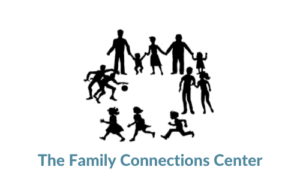
New Hampshire Department of Corrections Case Study
Organization: New Hampshire Department of Corrections
URL: https://www.nh.gov/nhdoc/fcc/
Program Name: Family Connections Center (FCC)
The mission of the Family Connections Center is to strengthen the connection between incarcerated parents and their families while facilitating ties to their community through education and support.
The FCC offers an in-prison comprehensive family resource center comprised of parenting and healthy relationship (Love Notes EBP) classes plus weekly support groups. Other activities aim to connect parents with their children including making audio recordings of books for their children, offering supervised video visits with a parent coaching component, and opportunities to spend time with their children through Family Fun Days and a Children of Incarcerated Parents Summer Camp, which is done through a partnership with YMCA Camp Coniston. In addition, the Center offers case management to connect parents with schools and the family court systems.
Funding: The FCC is supported in part by state funds by way of staffing and space within the three state prisons. Love Notes training and materials were funded by various grants and private donations.
What problem is being solved? Incarcerated mothers and fathers have unique family needs for staying connected with their children and their partner, if they have one. If partnered, they benefit when that intimate relationship is strengthened. If unpartnered, they learn how to create a healthy intimate relationship in the future. The program’s aim is to improve the incarcerated parents’ communication with partners, co-parents, and children while notching back chaos and malfunction.
Curricula used: Love Notes
Curricula benefits:The curriculum is kept up-to-date, and it is well-organized; concepts are taught and then reinforced in later lessons. The workbooks provide a tangible learning tool for the participants. The Evidence Based Program is shorter and more condensed. While Love Notes is focused on youth, the majority of the incarcerated population has a history of early onset substance use and trauma which affected their brain development in multiple areas (emotions and attachment, for example). The curriculum provides a needed foundation for the participant’s relationship development. Every lesson includes a trusted adult connection which for this population is reframed and discussed as a trusted peer connection, encouraging them to assess the relationships of those they confide in.
Target Audience: Incarcerated men and women, primarily parents
Audience Demographics: Majority white, some Hispanic and black. Late 20s to mid 40s.
Class size: Pre-pandemic – 5-10 in a class; post-pandemic – 5 in a class
Program setting: Male and female correctional facilities. Classes are in single sex groups – either mothers or fathers. Participants sit in a circle.
Location of Instruction: Three state prisons – Two for males, one for females.
Length of Instruction: Two classes a week, 1.5 hours each session for about four weeks. The facilitator is flexible with the content based on what topics come up in class.
Instructors: Trained Family Connections Center staff
Student Workbooks: Participants use physical workbooks. Participants may keep them. Depending on the comfort level of the participant, they may or may not use the workbook. The benefit of workbooks is that it addresses a different learning style.
Incentives to teachers and students: No additional incentives are given to participants beyond the benefits from participating in the Family Connections Center. If participants engage in 75 hours of programming, they can apply for two months off their sentence (NH Earned Time Credit provision). Most participants continue programming at the FCC after passing the 75-hour mark.
Observable Outcomes: Participants report more open communications about relationships; they like learning the science of relationships, especially men. They “get” the Decide don’t Slide concept. “Is this impulsive or is it a good choice?” They also like the program videos.
Challenges: Scheduling the classes because of COVID restrictions within the facilities. The number of people with trauma, addiction, etc.
Tips:
- Be open (basic social worker stuff).
- Don’t be afraid of talking about feelings with people in prisons.
- Know your own baggage and biases. Develop a culture of awareness.

